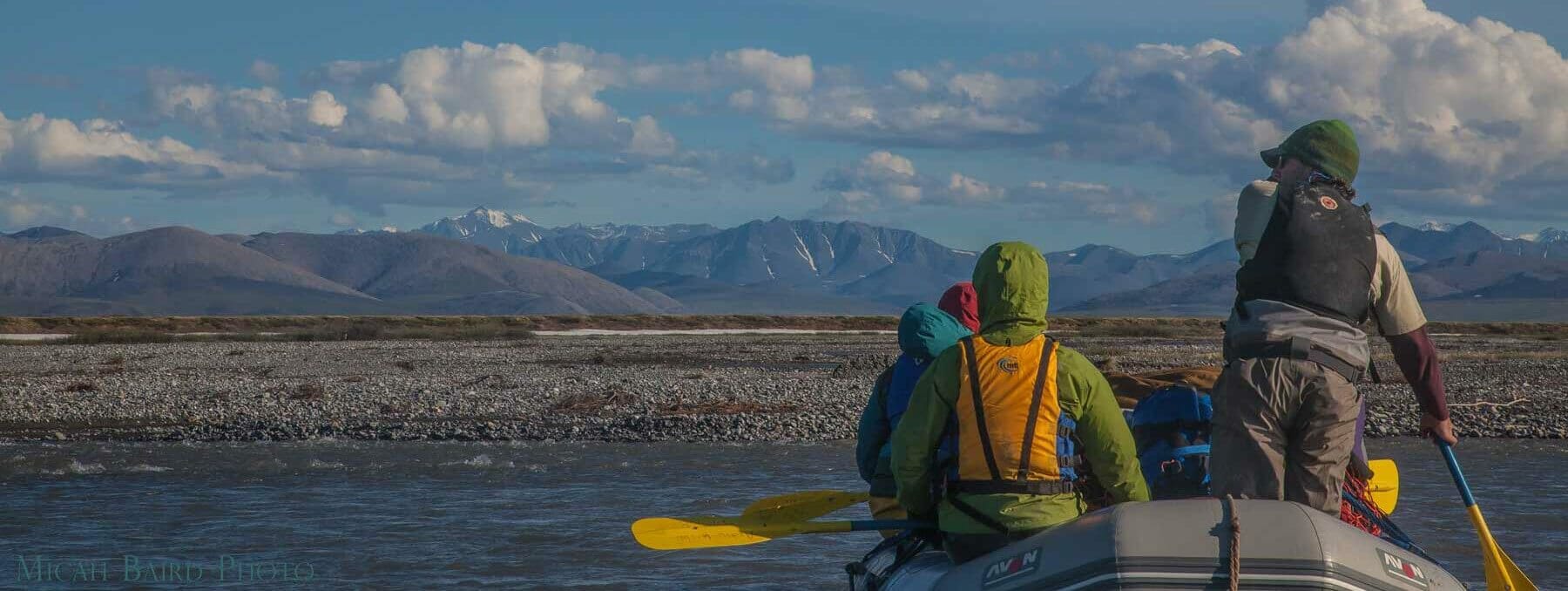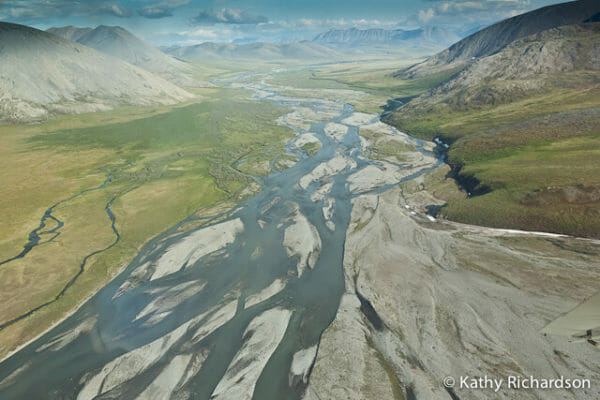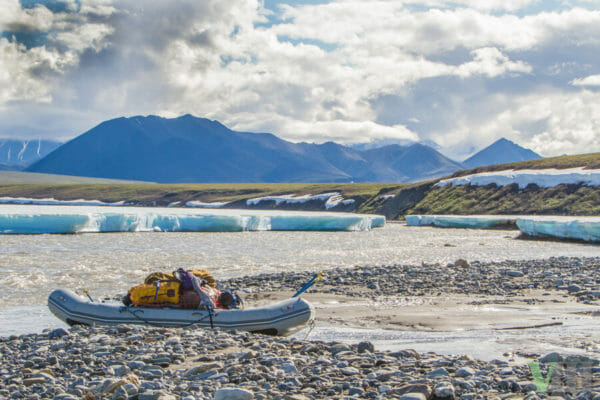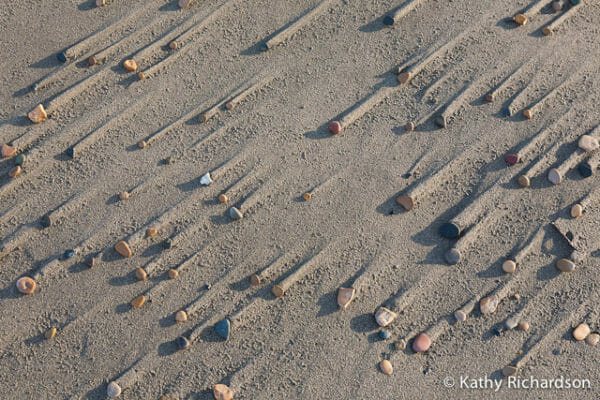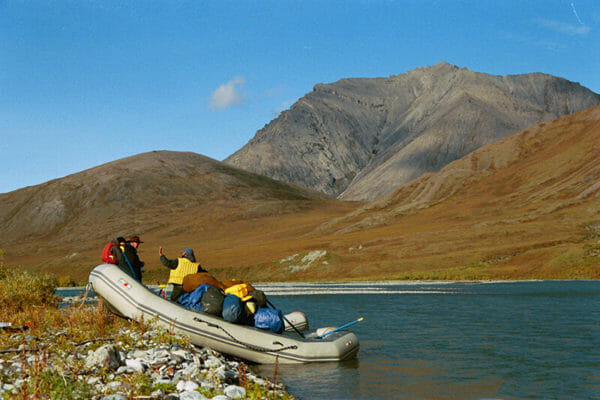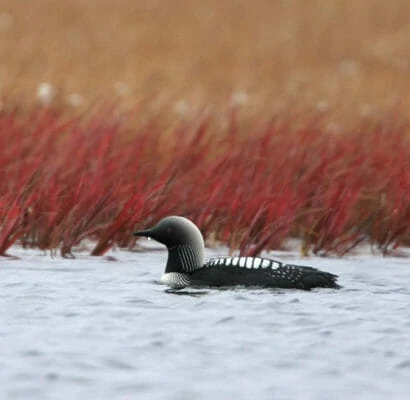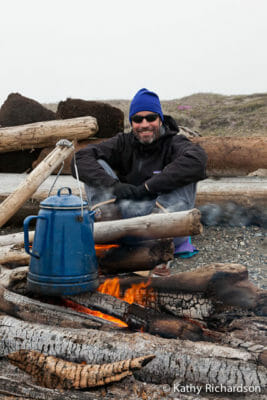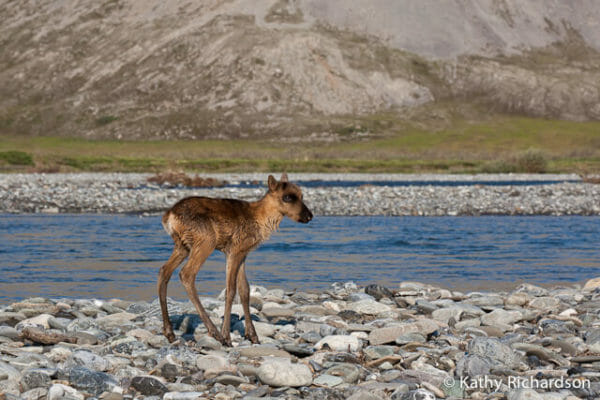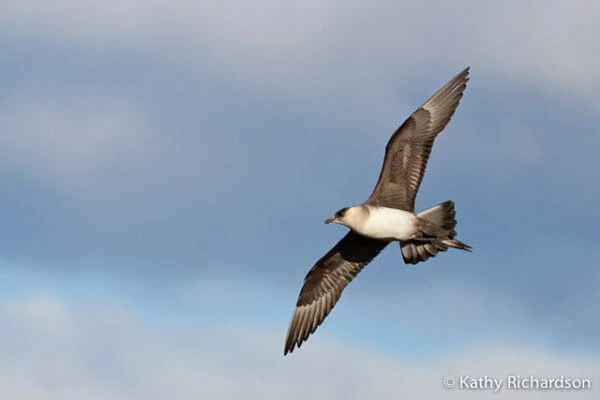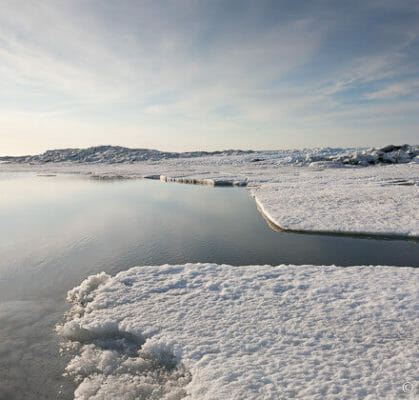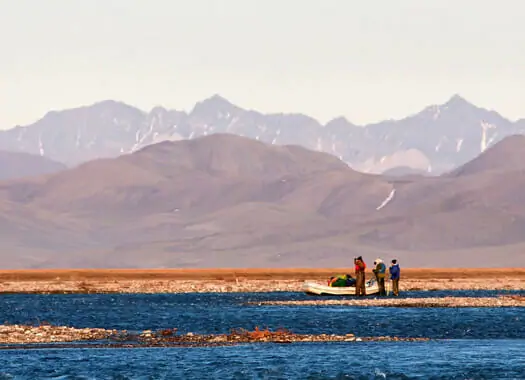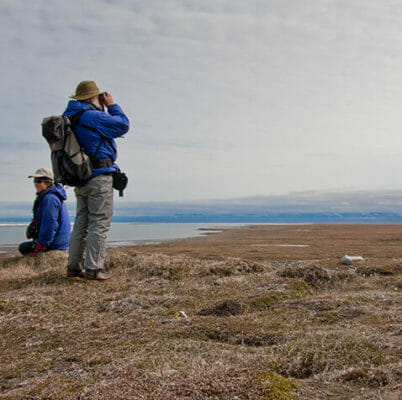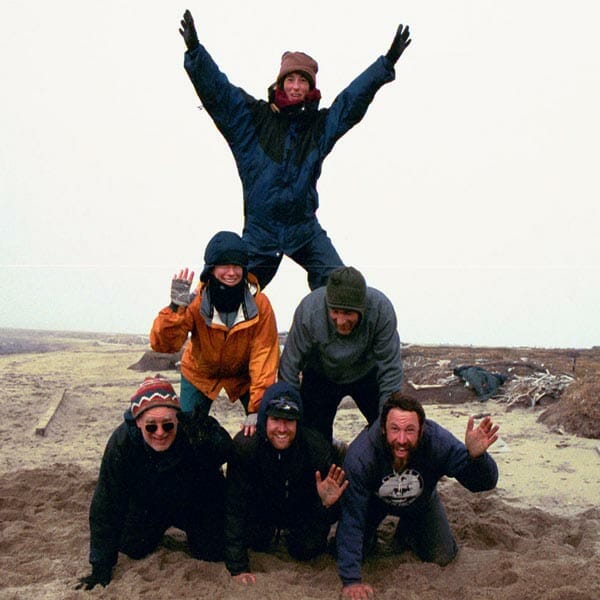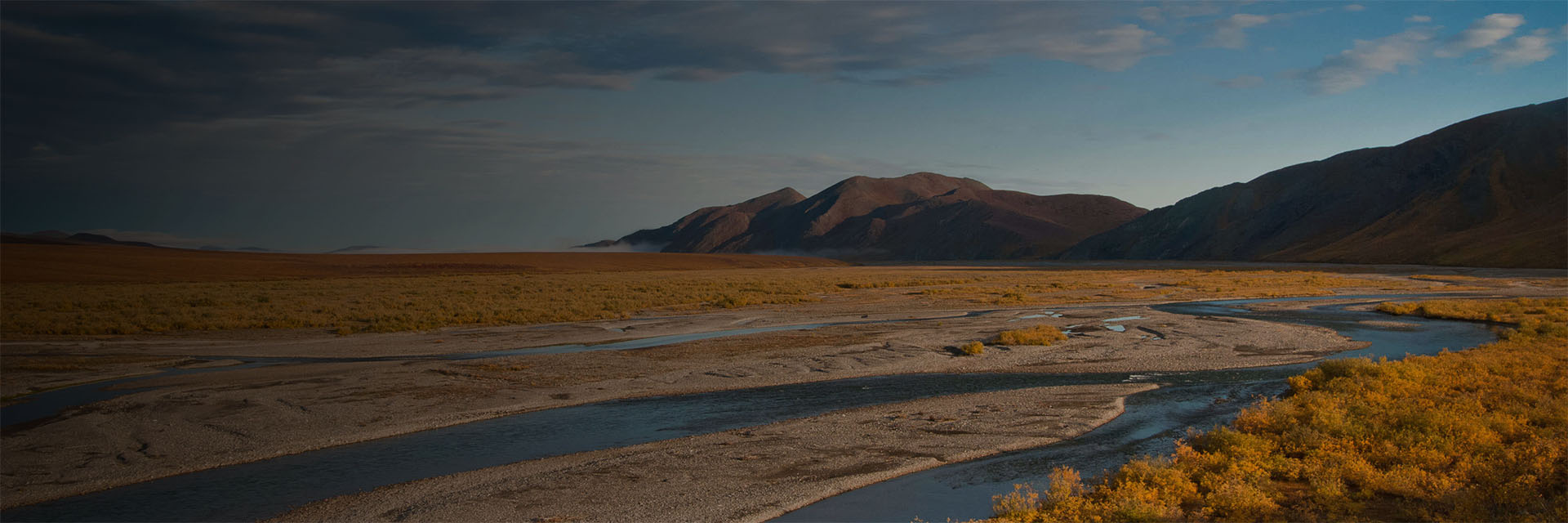Last updated: March 26, 2024
Itinerary
What follows is a general flow of events. Expect the unexpected and prepare to be flexible.
June 26
Meet with your guides for a pre-trip meeting at 9 am at Arctic Wild headquarters in Fairbanks. Once everyone is packed and ready, we catch a flight to Arctic Village, a Gwich’in community in the Brooks Range where we are hosted for the evening.
June 27
Fly further north into the Arctic Refuge to the Aichilik River. Once the plane goes, we are on our own in the immense and quiet landscape.
June 28 - July 2
At any time during the week, we could see caribou, a grizzly bear or two, a wolf, or other arctic wildlife. On the three anticipated paddling days, we will be “on the go” for 6 to 8 hours. We won’t be in the rafts that whole time and will pull ashore several times each day for brief forays or to watch wildlife. At day’s end, we’ll choose a nice, dry, scenic camp. There will be free time for group and personal pursuits. Guides will lead informal natural history hikes, but you are also welcome to go off on your own.
We will plan two or three “layover days” and 3 full paddling days. Our first day hikes will be in the Brooks Range foothills. This area affords us great opportunities for gaining elevation, admiring wildflowers covering the slopes, and hopefully watching wildlife.
Our final layover will be on the arctic coast. Hiking along the beaches is excellent and a pretty good workout. Depending on sea ice conditions, we may be able to climb an icy “pressure ridge” formed by the frozen Arctic Ocean.
July 3
Await the arrival of our bush pilot, who will land on the beach. We will fly south across the breadth of the Arctic National Wildlife Refuge back to Arctic Village where we will switch to a larger plane. Weather permitting we arrive back in Fairbanks for a late dinner.





